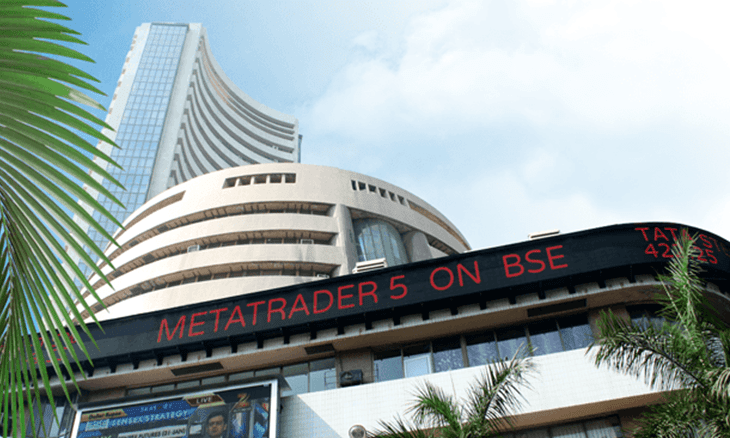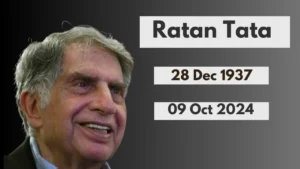RBI Interest Rate Decision, West Asia Conflict to Drive Markets: Analysts
In the rapidly evolving global economic landscape, two factors are standing out for their potential impact on the Indian stock market: the RBI interest rate decision and the escalating West Asia conflict. According to leading financial analysts, these developments are likely to shape market sentiment in the coming months, influencing both domestic and global investors. In this article, we delve into how these factors interplay and what implications they might hold for the Indian economy.
Understanding the RBI Interest Rate Decision
The RBI interest rate decision is a key event for the Indian economy. The Reserve Bank of India (RBI) plays a pivotal role in managing inflation, economic growth, and financial stability. One of its most powerful tools is the adjustment of interest rates through its monetary policy.
When the RBI changes its benchmark interest rates, it directly impacts borrowing costs for businesses, consumers, and the government. A hike in rates can lead to higher borrowing costs, which may slow down investments and consumer spending. Conversely, a rate cut can stimulate borrowing and spending, thereby driving economic growth.
Why the Upcoming RBI Interest Rate Decision is Crucial
As the global economy faces turbulence due to inflationary pressures and geopolitical risks, including the West Asia conflict, the RBI’s next move is being closely watched. Rising global oil prices, increased inflationary trends, and concerns over growth in key economies like the U.S. have all added complexity to the RBI’s decision-making process.
Experts believe the RBI might have to strike a delicate balance between containing inflation and supporting growth. A hawkish stance, where the RBI increases interest rates, could indicate its priority is to curb inflation. However, this could lead to a dip in stock market sentiment as higher interest rates usually dampen corporate earnings and investment activities.
On the other hand, an accommodative stance, where rates are kept steady or reduced, could provide a temporary boost to markets, especially sectors like real estate, banking, and automobiles. However, this would need to be balanced against inflation risks, which can erode purchasing power and economic stability.
Impact of the West Asia Conflict on Global Markets
Geopolitical tensions in West Asia (Middle East) are another critical factor that could drive market volatility. The region is home to some of the world’s largest oil producers, and any conflict there could severely disrupt oil supply chains. This would, in turn, lead to a spike in crude oil prices, which could impact global inflation and economic stability.
How Oil Prices Affect the Indian Economy
India is highly dependent on oil imports, with nearly 85% of its crude oil needs being sourced from foreign markets. A sharp increase in oil prices due to the West Asia conflict can lead to higher transportation and manufacturing costs, pushing up inflation. This inflationary pressure could force the RBI to adopt a more hawkish stance, further increasing interest rates to prevent runaway price rises.
Moreover, sectors like aviation, logistics, and manufacturing, which rely heavily on oil, could see their costs skyrocket, negatively affecting their profitability. Stock market sectors linked to energy, oil, and gas, on the other hand, could benefit from rising oil prices.
Key Sectors Affected by the RBI Interest Rate Decision and West Asia Conflict
- Banking and Financial Services:
The banking sector is sensitive to interest rate movements. A rate hike generally benefits lenders, as they can charge higher interest rates on loans. However, it can also lead to a decline in demand for loans, which might offset the benefits. A reduction in rates, meanwhile, encourages borrowing but could squeeze profit margins for banks. - Real Estate:
The real estate sector is another one that reacts quickly to changes in interest rates. Higher rates make home loans more expensive, reducing demand for housing. If the RBI adopts an accommodative stance, we may see an uptick in demand for homes and construction activities. - Automobiles:
Auto manufacturers rely heavily on financing, with many consumers purchasing vehicles on credit. A rise in interest rates would make auto loans more expensive, potentially leading to a slowdown in sales. Conversely, if rates remain low, we could see a boost in the automotive sector. - Oil and Energy:
The oil and gas sector is one of the most directly affected by the West Asia conflict. Rising crude oil prices can increase revenues for oil producers, while companies relying on oil imports, such as refineries and chemical manufacturers, may see a spike in costs. - Consumer Goods:
Higher inflation due to rising oil prices or interest rate hikes can reduce disposable income for consumers. This would hit sectors like consumer durables, FMCG, and retail, which rely on discretionary spending.
Analyst Predictions: What to Expect
According to analysts, the combination of these two factors—the RBI interest rate decision and the West Asia conflict—could lead to significant volatility in the markets. Here’s what they are predicting:
- Short-term Volatility:
In the immediate future, market fluctuations are expected as investors react to both domestic and global factors. If the RBI raises interest rates, expect a dip in sectors like real estate, banking, and automobiles, while oil-related sectors may benefit from rising crude prices. - Long-term Outlook:
Over the longer term, the impact of the West Asia conflict could subside if diplomatic solutions are reached. However, the RBI’s monetary policy will continue to play a crucial role in shaping the market. If inflation remains under control, we could see a sustained rally in growth sectors like banking and real estate. - Investment Strategy:
For investors, the key will be to maintain a diversified portfolio. Experts recommend focusing on sectors that benefit from inflation, like energy and commodities, while also keeping an eye on interest-rate-sensitive sectors like real estate and automobiles.
Conclusion
The RBI interest rate decision and the West Asia conflict are set to be two of the most significant drivers for the Indian stock market in the coming months. As the RBI navigates the delicate balance between inflation and growth, and the global oil market remains volatile due to geopolitical tensions, investors will need to stay informed and adaptable. Understanding the nuances of these developments can provide valuable insights into making strategic investment decisions.
As analysts suggest, a diversified investment approach and careful monitoring of these evolving factors will be key to navigating the current market landscape.
IF YOU WANT MORE ARTICLES THEN CLICK HERE












107 thoughts on “RBI Interest Rate Decision, West Asia Conflict to Drive Markets”
профиль с подписчиками безопасная сделка аккаунтов
магазин аккаунтов социальных сетей маркетплейс аккаунтов соцсетей
купить аккаунт с прокачкой площадка для продажи аккаунтов
биржа аккаунтов продажа аккаунтов соцсетей
магазин аккаунтов социальных сетей маркетплейс для реселлеров
магазин аккаунтов https://kupit-akkaunt-top.ru/
заработок на аккаунтах гарантия при продаже аккаунтов
Account trading platform Accounts marketplace
Online Account Store Purchase Ready-Made Accounts
Account Sale Buy and Sell Accounts
Account Buying Platform Gaming account marketplace
Account trading platform Online Account Store
Buy and Sell Accounts Buy and Sell Accounts
Social media account marketplace Social media account marketplace
Buy accounts Database of Accounts for Sale
Account Sale Find Accounts for Sale
Account Buying Service Gaming account marketplace
buy accounts account selling service
secure account sales account marketplace
account trading service purchase ready-made accounts
account buying platform secure account sales
buy pre-made account account buying service
website for buying accounts accounts marketplace
accounts market verified accounts for sale
sell pre-made account database of accounts for sale
account acquisition sell account
account market sell account
sell pre-made account verified accounts for sale
verified accounts for sale verified accounts for sale
profitable account sales buy and sell accounts
account sale https://buy-soc-accounts.org
account sale sell accounts
account trading platform account trading platform
account exchange account market
accounts for sale guaranteed accounts
sell account account market
account marketplace database of accounts for sale
profitable account sales marketplace for ready-made accounts
account buying service account sale
accounts marketplace account exchange
account trading account selling platform
gaming account marketplace website for selling accounts
buy pre-made account website for buying accounts
social media account marketplace top-social-accounts.org
account marketplace https://accounts-offer.org
gaming account marketplace https://accounts-marketplace.xyz
sell pre-made account https://buy-best-accounts.org/
verified accounts for sale https://social-accounts-marketplaces.live
account catalog https://accounts-marketplace.live
website for selling accounts https://social-accounts-marketplace.xyz
account buying service https://buy-accounts.space/
verified accounts for sale accounts market
online account store https://buy-accounts.live
buy and sell accounts buy accounts
sell account https://social-accounts-marketplace.live/
online account store https://accounts-marketplace-best.pro
купить аккаунт akkaunty-na-prodazhu.pro
купить аккаунт https://rynok-akkauntov.top/
биржа аккаунтов https://kupit-akkaunt.xyz/
биржа аккаунтов https://akkaunt-magazin.online
купить аккаунт https://akkaunty-market.live/
площадка для продажи аккаунтов https://kupit-akkaunty-market.xyz/
площадка для продажи аккаунтов akkaunty-optom.live
магазин аккаунтов https://online-akkaunty-magazin.xyz
маркетплейс аккаунтов соцсетей akkaunty-dlya-prodazhi.pro
площадка для продажи аккаунтов магазины аккаунтов
fb account for sale https://buy-adsaccounts.work
buy facebook ad accounts https://buy-ad-accounts.click
buy old facebook account for ads https://buy-ad-account.top
cheap facebook account https://buy-ads-account.click
cheap facebook account buy facebook ad accounts
facebook ads accounts https://buy-ads-account.work
buy fb account buy facebook ads accounts
Эта разъяснительная статья содержит простые и доступные разъяснения по актуальным вопросам. Мы стремимся сделать информацию понятной для широкой аудитории, чтобы каждый смог разобраться в предмете и извлечь из него максимум пользы.
Разобраться лучше – https://medalkoblog.ru/
buy facebook account buy facebook old accounts
buy a facebook account ad-accounts-for-sale.work
google ads reseller buy google ads account
buy google ad account buy google ads threshold account
facebook account sale https://buy-accounts.click
google ads accounts https://ads-account-for-sale.top
buy account google ads https://ads-account-buy.work
google ads reseller https://buy-ads-invoice-account.top
buy google agency account https://buy-account-ads.work
google ads agency account buy https://buy-ads-agency-account.top
google ads account for sale buy aged google ads account
buy google adwords account https://ads-agency-account-buy.click/
verified facebook business manager for sale buy-business-manager.org
buy aged google ads account https://buy-verified-ads-account.work
buy facebook bm buy-bm-account.org
facebook bm for sale https://buy-verified-business-manager-account.org/
facebook bm account buy https://buy-verified-business-manager.org
facebook verified business manager for sale https://buy-business-manager-acc.org
verified facebook business manager for sale https://business-manager-for-sale.org
business manager for sale https://buy-business-manager-verified.org/
buy fb bm https://buy-bm.org/
fb bussiness manager https://verified-business-manager-for-sale.org/
verified bm for sale buy-business-manager-accounts.org
buy tiktok business account https://buy-tiktok-ads-account.org
buy tiktok ad account https://tiktok-ads-account-buy.org
tiktok ads account buy https://tiktok-ads-account-for-sale.org
tiktok ads account for sale https://tiktok-agency-account-for-sale.org
buy tiktok business account https://buy-tiktok-ad-account.org
buy tiktok business account https://buy-tiktok-ads-accounts.org
tiktok agency account for sale https://tiktok-ads-agency-account.org
tiktok ads account buy https://buy-tiktok-business-account.org
tiktok ads account buy https://buy-tiktok-ads.org